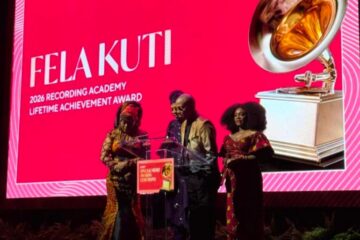Aboru Aboye purely Yoruba language, not for Ifa priests, says Tope Alabi

Gospel singer, Tope Alabi, has reacted to the controversy trailing her viral video where she was heard singing in Yoruba language using the word ‘Aboru Aboye’, a form of greeting among Ifa initiates.
In the viral video, Alabi referred to herself as ‘ebo’ literally meaning sacrifice, while also singing the words, “Abiye ni mi, Oruko mi ni yen. Mo de bo, mo ru, mo ye,” (I am a sacrifice, that’s my name. I am a sacrifice accepted by God, that’s my name).
The lyrics had since triggered a flurry of reactions in the media space as her fans and some Christian leaders took sides over her choice of words.
In the video, the award-winning singer who was seen ministering in a white garment church said, “Aboru Aboye” is a pure Yoruba language and not an exclusive preserve of traditionalists.
Alabi who explained with bible reference also clarified that her deft use of the language remained her peculiar style as a gospel artiste.
She said, “It was recorded that David made a sacrifice of faithfulness to God. Why was the word sacrifice not written as the same English word in the Yoruba version of the Bible? It is a Yoruba language. There is no special language for traditionalists. We are all speaking the Yoruba language.
“If some people say they want to use the language in their own style, it is not bad. We have also decided to use it in our own style.”
While reiterating that sacrifices were rendered in the bible, she further queried saying, “Was Abraham’s sacrifice accepted or not? Was it not the same with Isaac?”
In establishing her points with specific reference to a bible passage which is Romans 12:1, she said, “Brethren, by the mercies of God, that you present your bodies a living sacrifice, holy, acceptable unto God, which is your reasonable service. The word ‘acceptable’ is the ‘Aboru’ while ‘living sacrifice’ is Aboye.”











